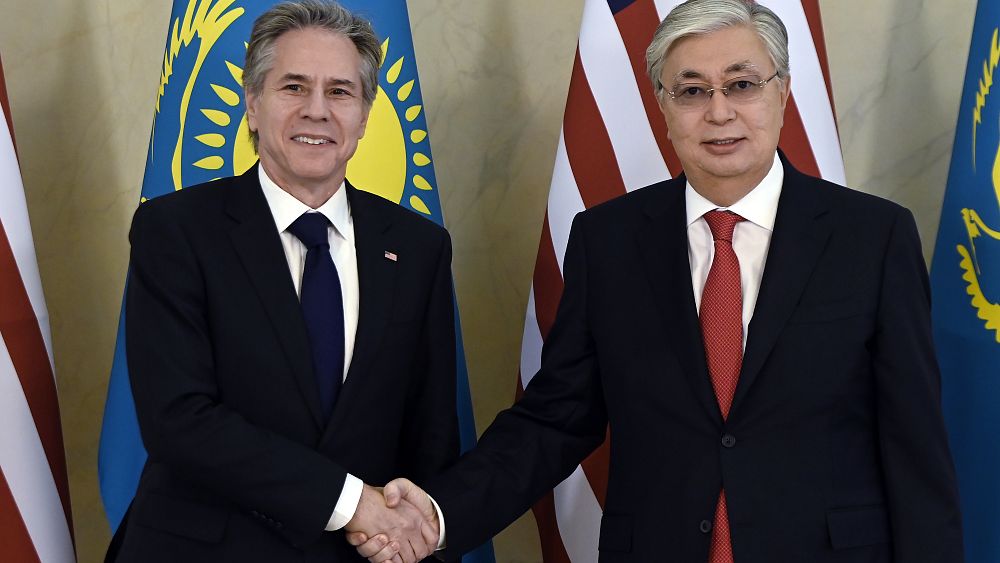US Secretary of State Antony Blinken on Tuesday showed its support for Kazakhstan during a visit intended to strengthen the influence of the United States in Central Asia while the traditional ally Russia is cornered by its invasion of Ukraine.
The head of American diplomacy is due to meet his counterparts from the five former Soviet republics of Central Asia (Kazakhstan, Uzbekistan, Tajikistan, Kyrgyzstan, Turkmenistan) in the Kazakh capital Astana, during this tour which comes a few days after the anniversary of the Russian invasion of Ukraine.
Its purpose is to strengthen the footprint of the United States in this region caught in a vice between the powerful Russian neighbour, a former tutelary power, and the growing influence of China.
“As you know, the United States strongly supports Kazakhstan’s sovereignty, territorial integrity, and independence.”said the US Secretary of State. “In this particular time, these words have even more resonance than usual.“, he added in reference to the Russian invasion of Ukraine and while Kazakhstan shares some 7,500 kilometers of border with Russia.
Russia’s invasion of Ukraine has raised concerns among some of its other neighbors. While Moscow and Astana continue to enjoy close relations, tensions have arisen in recent months.
Kazakhstan, a country as large as five times the size of France, seems particularly concerned with sparing its large Russian-speaking minoritynot unaware that Russian President Vladimir Putin has in particular pretexted alleged abuses against Russian speakers in Ukraine to justify his invasion.
Anthony Blinken, who will fly to neighboring Uzbekistan in the evening, spoke with President Kassym-Jomart Tokayev. The latter welcomed this visit “particularly important to give new impetus to the construction of strategic cooperation” between the two countries.
The Kazakh president, re-elected with more than 81% of the vote in November during a presidential election without competition, thanked the United States for their “constant and strong support” and assured want “deepen and strengthen” the partnership between Astana and Washington.
While Washington has no illusions about the possibility of these five countries letting go of their historic Russian partner, nor about the influence of their other powerful neighbour, China, the United States is playing, as elsewhere in Africa or Latin America, the “reliable partner” card.
In the midst of the war in Ukraine, the leaders of these Central Asian countries are on a tightrope due to formal defense agreements with Moscow and the economic and security weight of Russia. They thus adopted a position of balance in the conflict.
Since the beginning of the conflict, the five former Soviet republics of Central Asia did not support any of the UN resolutions condemning the Russian invasion of Ukraine.
AFP

